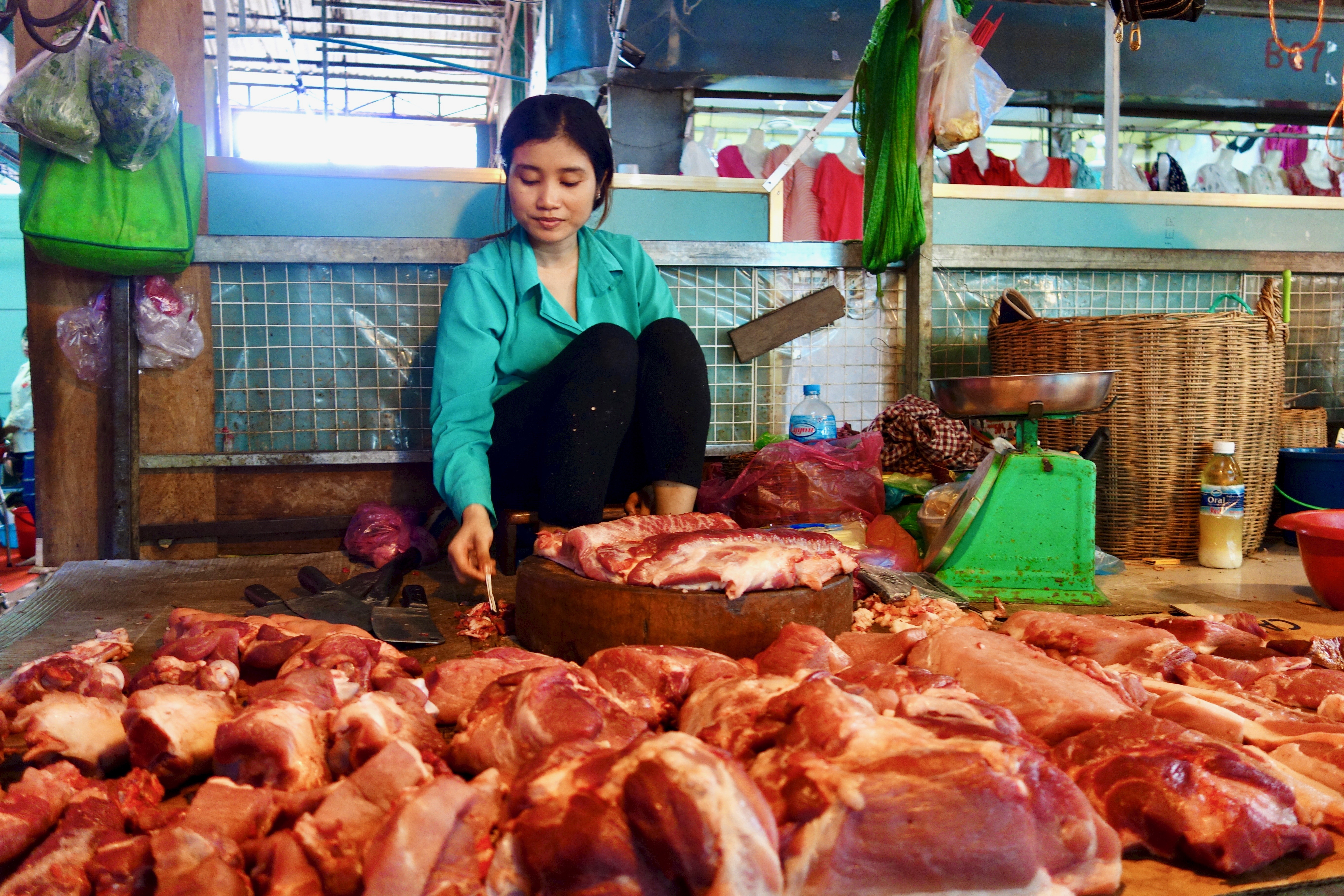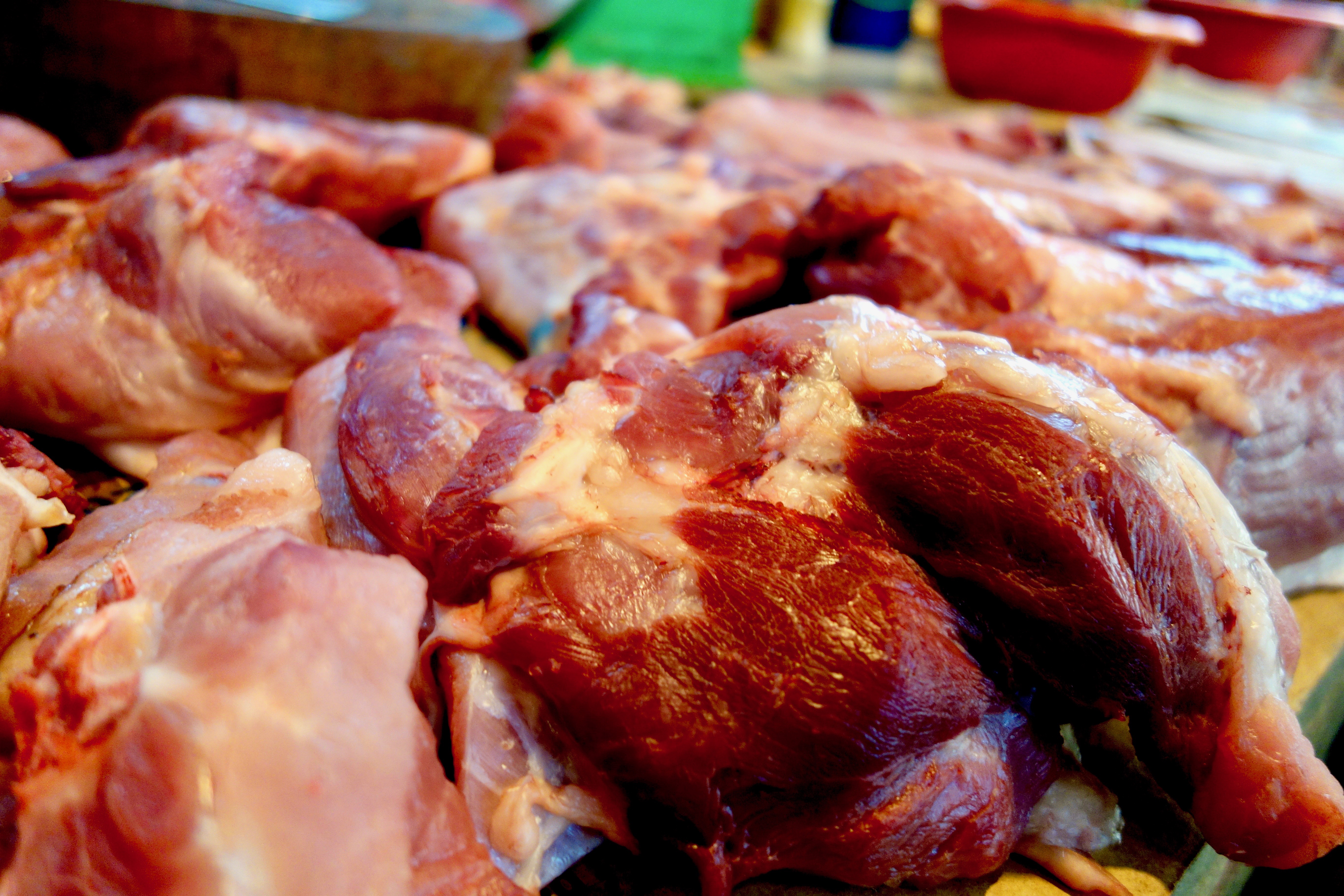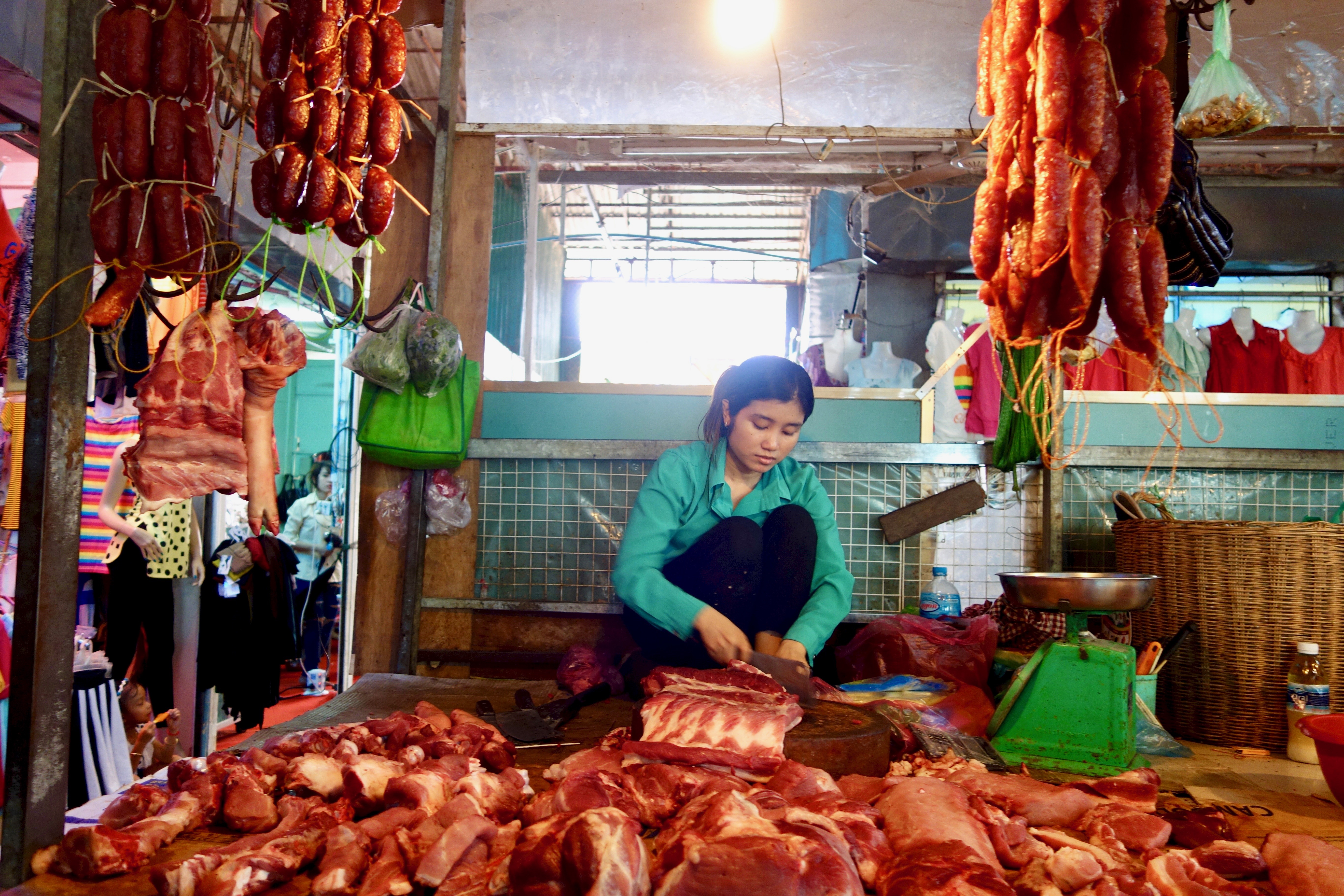
I step into a market in Cambodia. The atmosphere is dim. Bulbs hanging listlessly from zinc rooftops. Maret is perched on a wooden platform surrounded by raw meat that she is chopping on a circular wooden block.
Softly, she says: “I quit school to support my parents, they live in the countryside. They told me to go to the city to start a business. I was terrified! I thought I would have no customers.”
I asked Maret: “Why did you choose to sell meat??
“It’s easier to sell than clothes. People don’t always need new clothes, but… they do need to eat everyday.”

The market is teeming with stalls competing with the same meat. “Maret, what’s your secret? How do you get people to buy from you?”
“I realised that people will buy their meat when I ask them: what are you cooking today? Because I can recommend pieces which are good for soup, stir-fry, or grilling.”
As she tells me this, I realise she is talking about the theory of Jobs-To-Be-Done. It’s all about understanding what customers actually want to achieve. Don’t sell a bed, sell a good night’s sleep. Don’t sell a hammer, sell the painting on the wall. What is the outcome that the customer is seeking?
Maret might not have a degree from Harvard Business School, but she could school us in her intuitive business wisdom.
When meat is leftover at the end of the day, she takes it home, and brings it back the next day to sell. (There is no fridge at the market.) If it is still leftover on the second day, she drops the price steeply, and people buy this meat to feed their dogs. The rent for her stall is USD $1.50 a day.

Even though Maret and her sisters quit school to support their family, her brothers were allowed to continue going to school, reflecting a pattern of unequal education across the nation. The literacy rate for males is 86.5%, and lower at 75% for females.
Meanwhile, Maret immerses into her small business, learning critical skills to make a living, and forging her own sense of independence in the city.